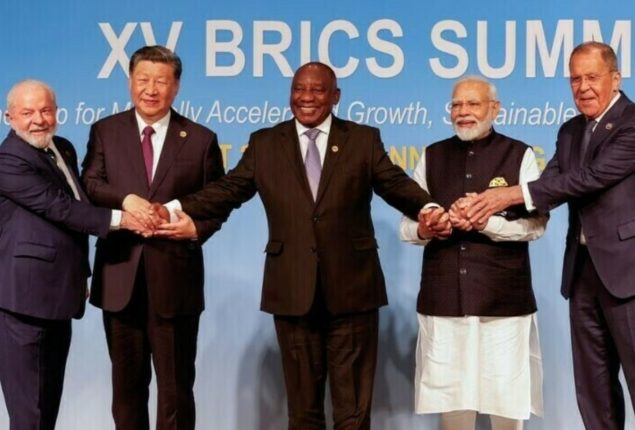US Assures Support for Pakistan’s Economy and IMF Engagement
IMF approved $3 billion SBA for Pakistan to aid economic stabilization. Finance...

BRICS Expansion and US Response: A Closer Look
The United States is engaged in a race to enhance its communication strategies aimed at the developing world as the BRICS alliance expands. However, the majority in Washington do not perceive an immediate threat from this Chinese-supported coalition.
The BRICS consortium, comprising Brazil, Russia, India, China, and South Africa, recently agreed to include six additional members. Chinese President Xi Jinping portrayed this move as a historic juncture for significant emerging economies challenging the Western-dominated global order. During the BRICS summit in Johannesburg, the Biden administration reaffirmed its commitment to increase financial support to the developing world through institutions such as the World Bank and the International Monetary Fund (IMF).
Jake Sullivan, President Biden’s national security advisor, pledged to advocate for reforms within the Washington-based financial institutions during an upcoming Group of 20 summit in New Delhi. The aim is to bolster the roles of both the US-backed organizations and India, a pivotal member of both the G20 and BRICS.
Publicly, the United States downplayed the significance of the BRICS expansion, asserting that countries retain the right to choose their own partners. Sullivan emphasized the substantial policy divergences among the member nations and dismissed the notion that BRICS would evolve into a geopolitical rival to the US or other countries.
Experts, however, view the BRICS expansion as indicative of the demand for a fresh approach to addressing unmet needs, primarily in economic realms rather than security. Emerging nations seem to seek alternatives rather than replacements for the existing US-led global order. The addition of new members to BRICS, including Iran, raises concerns in Washington, given Iran’s ambitions to alleviate its isolation and the disparities among the new members, such as Egypt, Saudi Arabia, and the UAE. Notably absent from this expansion are Southeast Asian countries, even as China becomes more assertive in maritime disputes, highlighting complex dynamics in the region.
Catch all the International News, Breaking News Event and Latest News Updates on The BOL News
Download The BOL News App to get the Daily News Update & Follow us on Google News.